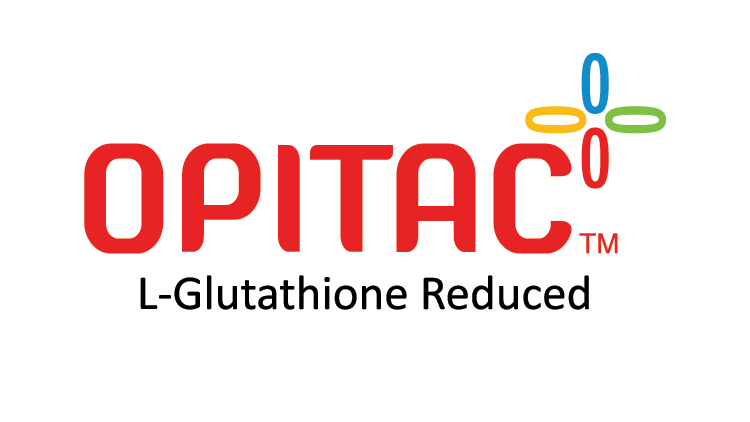Promotional Features
Glutathione flexes its ‘beauty’ muscles
The ingestible beauty market is still in its youthful stage. This means brands can innovative formulations and market to a consumer base which is turning away from synthetic topical beauty products in favor of dietary supplements that nourish the skin.
Nutrition Business Journal’s ‘2022 Condition Specific Report’ estimates that in 2023, the beauty-from-within market will grow at a sturdy 2.9%, reaching sales of approximately $1.47 billion, up from $1.39 billion in 2021. An interesting picture emerges when you consider the steady 2.3% of total supplement sales this market garnered for three consecutive years, with 2023 anticipated as the fourth. One thing is certain – this category is resilient and growing steadily.
“As more and more people venture out and enjoy meeting others in person, the beauty-from-within (skin supplement) market should experience tremendous growth,” says Kentaro Hamasaki, Assistant Manager, Overseas Sales Group, Nutrition Business Division for Mitsubishi Corporation Life Sciences Limited/Mitsubishi International Food Ingredients, Inc.
The challenge is to deliver a product in this category that engenders excitement and is not a ‘me-too’ supplement. Another challenge is to deliver the promise that the claims portray – primarily healthy, bright and glowing skin (i.e. ‘youthful’ skin).
In the beauty supplement category in particular, consumers are looking at different options beyond tablets and capsules for a more indulgent experience. This trend is growing overall.
According to 2022 research carried out by Numerator (‘Enriching the VMS Experience’), out of 1,016 individuals surveyed, 40% preferred gummies, while 7% preferred chewables, 6% soft chews, and 4% powders (mixed with liquids for a beverage).
Growth opportunities therefore are widespread. And glutathione is an ingredient that can help brands generate brisk repeat sales for consumers who want to support their skin from within.
Although collagen dominates the beauty supplement category, a powerful up-and-comer that is not new in the supplement space can prove to be a synergistic addition: L-glutathione, particularly the form l-glutathione reduced (GSH). This tripeptide exists in every cell in the body where it scavenges free radicals. As the body ages, the volume of glutathione decreases dramatically, allowing for exacerbated exposure to cellular oxidation and free radicals which cause visual skin aging.
Glutathione is also present in the skin and can protect the skin from UV-induced oxidative stress. Glutathione suppresses production of melanin-producing substances and also changes existing melanin to light-colored pheomelanin.
Pre-clinical research of a proprietary GSH ingredient showed inhibition of melanin production (which promotes an even complexion) through inhibiting the activity of tyrosinase, which in turn suppresses development of eumelanin, a compound that leads to the appearance of dull skin. In one comparison study, glutathione showed the strongest effect in inhibiting tyrosinase activity over free cysteine, chloride cysteine and kojic acid. Another study also showed glutathione having 100% tyrosinase inhibition compared to cysteine (86%), NAC (54%), alpha-lipoic acid (1%) and vitamin C (4%). GSH also has been shown to promote pheomelanin synthesis, which promotes skin luminosity and clarity.
Glutathione as GSH has also been shown to be highly synergistic with other beauty-from-within supplements. Research shows that glutathione with vitamin C, glutathione with catechin and glutathione with bilberry significantly enhanced DPPH radical scavenging activity, and also was as effective in half the dose of the test antioxidant alone. Other research showed that by adding glutathione in a small dose, collagen production by collagen peptides is enhanced.
In a human clinical study, 60 young adults (aged 19 to 22) consumed either glutathione 250 mg or placebo capsules twice daily for four weeks. In this study, melanin index was determined by Mexameter at six sites to represent the skin of the sun-exposed and sun-protected areas. The researchers also Quantitatively evaluated UV spots, Pores, and Evenness on the left and right sides of the face by VISIA CR system.
At the study’s end, there were reductions in the number of UV spots (melanin deposits) on the skin of those participants who consumed GSH. Furthermore, there were statistically significant increases in the number of UV-induced melanin deposits (spots) on both sides of the face in the placebo group.
“This study is valuable as it serves to confirm that consuming OPITAC™ GSH reduces UV spots; UV spots are one of the most difficult skin conditions to improve,” Hamasaki adds.
OPITAC™ GSH is a glutathione ingredient that has numerous added values allowing for its inclusion in a range of natural products appealing to consumers. It is derived from torula yeast, which is approved by the US FDA as an edible yeast. Manufactured in Japan by Mitsubishi Corporation Life Sciences Limited/Mitsubishi International Food Ingredients, Inc., OPITAC™ GSH is FDA-notified GRAS, certified Halal, Kosher, and has achieved both USP and JP monograph designations, along with GMP approval by the Japanese government.
References
Arjinpathana N.; Asawanonda P. Glutathione as an oral whitening agent: A randomized, double-blind, placebo-controlled study. J Dermatolog Treat. 2012 Apr;23(2):97-102. doi: 10.3109/09546631003801619. Epub 2010 Jun 5. PMID: 20524875.



